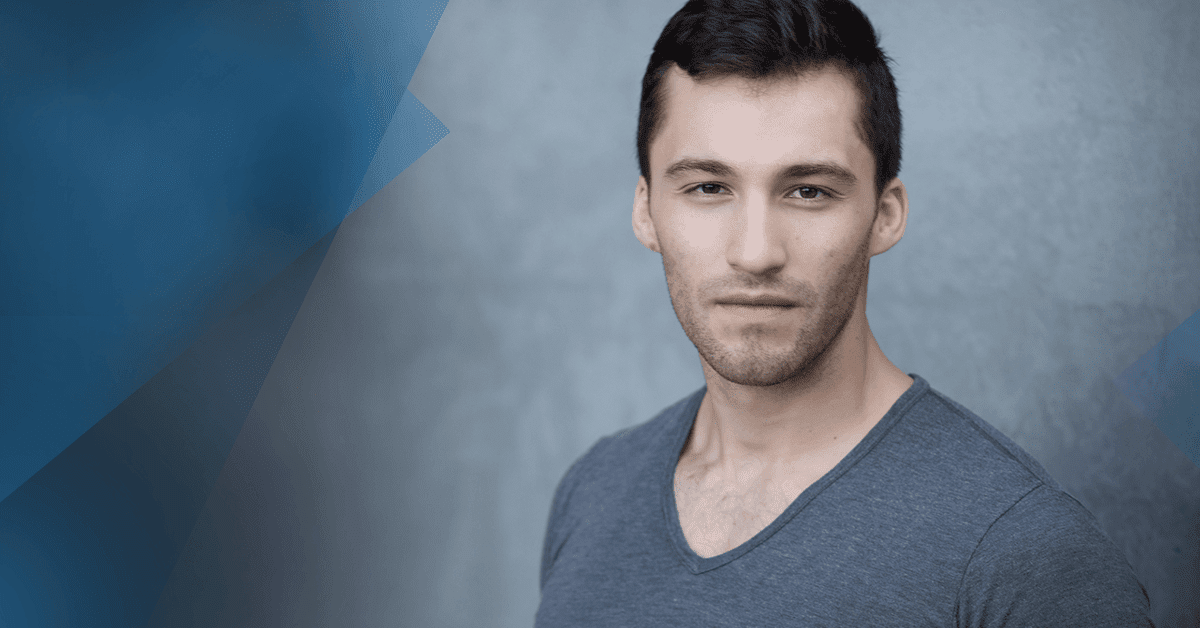My voice teacher just compared my singing to a squat.
The problem, he says, is that I’m approaching today’s vocal exercise like it’s a barbell back squat; he wants it to be more like a quarter squat, or maybe just a partial hip hinge with some knee flexion.
In other words, I’m doing too much.
Weird comparison? Yes. But that’s what happens when you train your voice teacher.
See, I live in two worlds. I’m a personal trainer by day and an opera singer at night. Gerald, who gives me vocal training in exchange for fitness training, is happy with the arrangement. He’s lost 30 pounds (and counting) under my guidance.
I’m also happy, because with his help, I’ve had steady employment as a singer.
As different as the goals may be, the challenges are surprisingly similar. Why do your clients hire you? Because their bodies don’t respond the way they want them to when they exercise or diet on their own. They don’t understand why something that comes naturally to other people isn’t at all natural to them. They’re disappointed that the body they were born with doesn’t look or perform the way they think it should, and they want you to find a way to make it better.
Change “body” to “voice,” and we could be talking about my career as a singer. Granted, you can’t see a voice when you look in the mirror. But when I start singing in an audition and it’s not what the director wants to hear, it feels personal. They’re rejecting a part of me, something I was born with and bring with me everywhere I go.
That’s why I need a coach.
But as frustrating as it is to get better, the process has given me insights into my clients’ struggles that I wouldn’t otherwise have. The following five lessons from my singing career have helped me as a coach, and I think they’ll help you as well.
1. There are lots of ways to achieve the same goal
Think of something that polarizes fitness pros—exercise machines, CrossFit, running for weight loss—multiply it by 100, and you get an idea of how much voice teachers argue about breathing.
Each different school of singing (German, Italian, American …) has its own approach to breathing, with coaches who argue passionately that their way is the right way.
Which one’s best? Whichever one helps you make the most beautiful sounds, with the least effort, when you sing in front of an audience. It’s different for every singer. A dogmatic coach who insists every student must breathe the way he was taught isn’t doing those students any favors.
Similarly, there are lots of ways to lose weight. And lots of ways to put on muscle. And lots of ways to teach exercises to your clients.
The best teachers in any discipline find the approach that works best for their students’ bodies and temperaments. Be a training agnostic.
READ ALSO: Five Exercises You Love to Teach that May not Be Right for Your Clients
2. Cues need to be client-specific
When I sing operatically, the director often tells me to make a “dark” sound. I know what he means, but what sounds darker to the world sounds brighter in my head. Thus, a cue that works for the majority of opera singers doesn’t help me at all.
Now imagine you’re training a client whose heels come up when she squats. To help her keep her heels on the floor, you cue her to “sit back” into the movement. It’s worked with every other client, but for this one, the cue causes her to fold up like a jackknife, turning a squat into a good morning.
Never assume every client hears the same words in the same way. See how they respond to each cue, ask them how a movement feels when they do it right, and adapt your words accordingly.
3. Coaching isn’t effective unless the client can do it on her own
Imagine a math teacher whose kids can solve problems in her classroom, but not outside of it. They struggle with their homework, and their scores on standardized tests are an embarrassment to the school. Would you say she’s a good math teacher? Probably not.
Now imagine a voice coach who can get a student like me to make beautiful sounds in his studio. But unless I understand specifically how the coach helped me produce those sounds, I won’t be able to reproduce them in my own practice. (Most singers practice at least six hours for every hour we spend with a teacher.) If I can’t make those sounds in practice, I certainly can’t in an audition or performance. Which means he hasn’t actually made me a better singer, no matter how good I sound while he’s coaching me.
You can see where I’m going with this.
As a trainer, your goal should be to make yourself redundant. Your clients should be able to train themselves on the days you aren’t there. Moreover, they should be able to make adjustments on their own.
This is an unpopular opinion, but I view personal training as a luxury; I went from overweight to guy-in-damn-good-shape on my own. (Although I did use a physique coach, Bryan Krahn, to get into my very best shape.) It can be done. Your efforts can make the process faster, easier, and more fun, but your clients don’t need you. Don’t pretend they do.
When you coach a client, encourage him to fix things himself. Ask him how that last set went and ask what he might have done to make it just a little bit better. If it was perfect, ask him why it was so good.
I’ve found that if you empower clients to train themselves, you may lose a session here or there, or even a client or two, but not as many as you’d think. In my experience, clients you lose because they feel empowered leave glowing testimonials and provide referrals galore.
Or maybe you go fully online with a client who’s confident enough to train on her own but wants you to continue writing her programs and providing accountability and support.
Or maybe you find that fostering a sense of independence in your clients leads to a hybrid training model—a combination of in-person and online coaching, as outlined by the Online Trainer Academy. For example, I have a client I train online when I’m away (which is most of the time), but work with in person two to four times a week when I’m in Brooklyn.
4. Your job is to help clients focus on successes instead of failures
There are times when it seems I can’t do anything right. I’ll feel stuck at a technical plateau, or get into a brutal streak of failed auditions, or fall into a negative-feedback loop where I wonder why I’m not farther along in my career. It happens to every singer, and every singer knows it happens to every singer. But when it’s happening to you, you feel like a failure.
Your clients will almost certainly feel this way when weight loss stalls. Or their lifts plateau. Or they have a few “bad weekends.” Or they get a nagging injury and have to quit doing their favorite exercise for a while. You can tell your clients that these things happen to everyone who works out, and while they may believe you, it doesn’t change the fact that they feel like they’re alone. And that’s never a good feeling.
An insecure voice teacher will view these setbacks through a self-centered lens, blaming the student for poorly representing his teaching. Similarly, an insecure trainer will blame a client for failing in her diet, or not working hard enough in the gym.
This is ego, and it helps no one.
When I have a vocal setback, or when I get frustrated that I can’t figure something out, my teacher empathizes and reassures me that it’s normal. He’ll explain that while I may have figured it out mentally, my body needs time to catch up. Then he reminds me of other setbacks I’ve overcome, and redirects my attention to a course of action to help me work it out.
Let’s say you have a client whose weight hasn’t budged for weeks. You can use the same approach, beginning with empathy. You understand how frustrating it is to reach a weight-loss plateau. You tell her it’s not just normal; it would actually be unusual if it didn’t happen at some point. Then you remind her of all the good work she’s done—exercising consistently, losing 15 pounds, dropping three sizes …
Most important, you encourage her to think of it not as a failure, but as an obstacle to overcome. That gives you an opening to redirect her focus from the problem to the solution. Now, instead of drowning in self-doubt, you can help your client plot a course for success.
5. You can’t control genetics, only how you use them
Lots of singers have bigger voices than mine. Some of them master technique and navigate the passaggio the way kids take to a ball pit. I could sit back and envy these people, but what good would that do?
In our world, fitness seems way too easy for some people. They eat junk food and drink beer but never lose their six-pack. They follow random programming and yet somehow bench 300 pounds. You might even be one of them.
Imagine how it feels when a client who struggles to do a push-up or hold a plank sees someone who does those things effortlessly. What do you say when she starts to get down on herself?
Consider my experience: After spending hundreds of hours working on my technique, my voice can do things I only dreamed of a couple of years ago. It’s bigger, it’s freer, and it’s more consistent from the top to bottom of my vocal range. The instrument hasn’t changed; I just learned how to play it.
Similarly, your client may have struggled with his diet and training before, but that doesn’t mean he’s doomed to failure. He may have better genetics than he thinks; he just hasn’t executed the right plan for him.
Encourage your client to focus on what he can control. It’s in his power to develop consistently good habits, execute a well-designed program, and then see what happens.
Final thoughts
Let’s return to where we started, with my breathing:
I tend to do a bit too much—the full squat, as opposed to the partial. Some in the opera world attribute this to the fact I actually do squats (lifting and singing is a hot topic in my field), but the issue predates my time under the bar. It’s just my nature to try a little too hard sometimes.
Our common interest in fitness gives Gerald, my teacher and client, a way to help me understand problems we need to fix when the vernacular of music fails. So when he says to “tuck your pelvis in, like when you do a glute bridge,” with the goal of taking tension off my abs, I get it.
Not only does it help me sing better in the moment, it’s a cue I can use in practice and take with me to auditions and performances.
That’s what a good teacher does.










